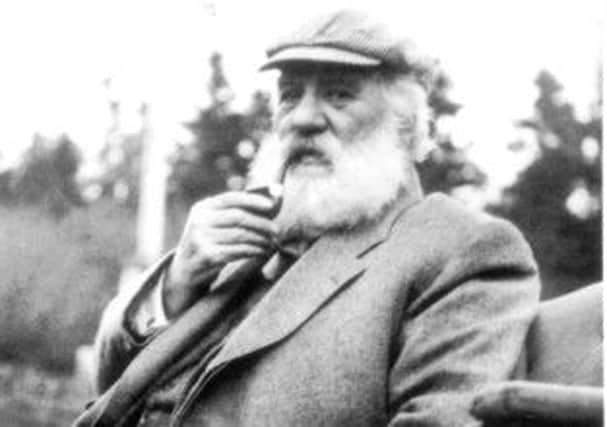Eugenic policies of the past teach sobering lessons


In the minds of many, eugenic policies defined as strategies aimed at positively influencing the genetic heritage of a community will always be associated with the abuses of Nazi Germany. What is little known, however, was the influence of Scottish thinkers who backed such policies during the 19th and 20th centuries. Their support has recently been revealed in a new book entitled The Ethics of the New Eugenics published on behalf of the Scottish Council on Human Bioethics.
Eugenics, as a specific discipline, emerged during the 1860s with the Englishman Francis Galton, who was greatly influenced by his cousin Charles Darwin, arguing that since many human societies sought to protect the sick and the weak, they were contravening natural selection. Indeed, because of the development of medical care and other social policies, the weakest individuals were now surviving well into a reproductive age, enabling them to pass on their dysfunctions to their children. Galton indicated that only through eugenics could society be saved from a genetic degeneration towards mediocrity.
Advertisement
Hide AdAdvertisement
Hide AdProbably the best-known Scotsman who supported eugenics at the time was Alexander Graham Bell, famous as one of the inventors of the telephone. In 1883, and like many other early eugenicists, he proposed controlling immigration for eugenic purposes in order to make sure that only certain genetically healthy persons would be welcomed into a country. Bell became the honorary president of the Second International Congress on Eugenics in 1921.
At about the same time, the scientist Marie Stopes, who was born in Edinburgh and opened the UK’s first family planning clinic, defended the fight for contraception out of eugenic motives, amongst other reasons. She wrote, in 1920, that she “would like to see the sterilisation of those totally unfit for parenthood made an immediate possibility, indeed made compulsory”. Adding that when a responsible government passed legislation for mandatory sterilisations: “Then at last we will begin to see the elimination of the horror and degradation of humanity, which, at present, is apparently so hopeless and permanent a blot upon the world… The evolution of humanity will take a leap forward when we have around us only fine and beautiful young people…”
What is surprising is the extent to which eugenic policies were accepted by even the most respectable individuals at the time, such as previous prime ministers Winston Churchill and Scotsman Arthur Balfour, who gave the opening speech at the First International Congress on Eugenics in 1912.
Indeed, it was partly because of the support for such eugenic ideology, in both Europe and North America, that the Nazi party began to consider eugenic programmes as soon as it assumed power in Germany in 1933. It sought to protect a “pure” race through eugenic policies which encouraged “racial hygiene”. As a result, the sterilisation of up to 350,000 Germans, whom the Nazis viewed as mentally and physically “unfit”, took place.
Another incarnation of the eugenic ideology was the euthanasia programme for those deemed severely disabled and incurable. Overall, the programme oversaw the euthanasia of some 27,000 German patients, especially in psychiatric institutions.
But even after the horrors of the Second World War, eugenic ideology did not disappear. As late as 1963, the Anglo-Scottish professor of genetics at University College London, JBS Haldane, indicated that as soon as the science of genetics was better understood large-scale eugenic programmes would become possible, adding that “…we may expect a drastic reduction in the frequency of undesired abnormalities with simple genetical determination by the end of this [20th] century.”
To create desirable persons, he suggested inseminating women with the sperm of men judged to be physically and intellectually superior. Moreover, in an interesting early premonition of things to come, he said: “There is, however, another possibility which I at least take seriously. … The production of a clone from cells of persons of attested ability … [which] might raise the possibilities of human achievement dramatically.”
With the relentless development of modern genetic selection and the horrors of the Second World War becoming more distant, will a return to a new eugenics, in another guise, ever be possible in Scotland?
Advertisement
Hide AdAdvertisement
Hide AdWhat is certain is that the past respectability of making sure only certain kinds of children are brought into existence is already making a return.
• Dr Calum MacKellar is director of research at the Scottish Council on Human Bioethics www.schb.org.uk
SEE ALSO